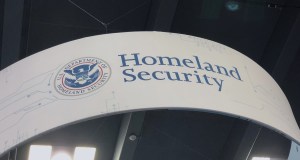The Homeland Security Department Thursday released its strategic vision and priorities for the next four years as part of a process required by Congress known as the Quadrennial Homeland Security Review.
The release of the 103-page document, however, met stiff resistance in the House, where members of the House Homeland Security Committee held a hearing Friday criticizing the department for delivering the report six months late — well after it could have helped guide the president’s 2015 budget request — and for its failure to address significant management deficiencies that many argue have prevented DHS from becoming a more integrated and agile agency capable of keeping up with a rapidly changing threat landscape.
 The five “enduring” homeland security mission areas identified by the Department of Homeland Security. (Source: DHS)
The five “enduring” homeland security mission areas identified by the Department of Homeland Security. (Source: DHS)“Year after year, DHS has ranked at or near the bottom of federal agencies and many public sector agency performance rankings,” Rep. Jeff Duncan, R-S.C., chairman of the Subcommittee on Oversight and Management Efficiency, said during a hearing to examine the DHS strategy document. “There seems to be a lack of aligning resources with strategic priorities. While the QHSR briefly mentions budget drivers, in general it does not link specific mission areas to the actual budget.”
House Homeland Security Committee chairman Rep. Michael McCaul, R-Texas, said the latest DHS strategy guidance is “more important than ever” given the increasing threats from resurgent terrorist groups overseas, continued border security weaknesses and the constant barrage of major cyber attacks against critical infrastructures.
“While I am encouraged by the emphasis of public-private partnerships and a risk-based approach to homeland security outlined in the QHSR, I am concerned that once again the Department has failed to make a link between their strategy and the resources necessary to implement,” McCaul said in a statement. “In addition, the QHSR’s lack of focus on management initiatives within the Department is troubling. To strengthen the Department, workforce challenges must also be addressed,” he said.
Stewart Baker, a partner at the law firm Steptoe & Johnson LLP and the first Assistant Secretary for Policy at DHS, said the quality and depth of the QHSR has improved significantly since the first review was issued in 2010, but there are areas that lack proper attention.
“With respect to cyber security, the 2014 QHSR has little new to say about the need to recruit and develop a skilled cyber security workforce,” Baker said in his testimony. “It also does not appropriately prioritize the importance of protecting critical U.S. infrastructure from espionage. To be sure, there are parts of the QHSR that need work. Nonetheless, on balance the report is an improvement over its predecessor.”
But at a more fundamental and tactical level, DHS needs to be able to respond quicker to emerging threats, said Frank Cilluffo, director of the Homeland Security Policy Institute at The George Washington University and a former special assistant to President George W. Bush on homeland security issues. “We can’t wait four years for strategies,” Cilluffo said. “You need a department that’s agile. I recommended an Office of Net Assessment along the lines of what the [Defense Department] has. That has played a significant role in protecting our country from a defense perspective. I think DHS would be well served if it had something that was nimble, agile and doesn’t have to wait four years to put together a strategy when the world changes so dramatically overnight.”






